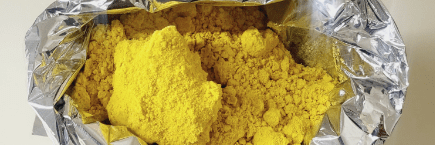Introduction: What Are Psychoactive Drugs?
Psychoactive Drugs refer to substances designed to mimic the effects of illegal drugs like cannabis, ecstasy, or cocaine while avoiding legal restrictions. Often marketed as harmless products under names like bath salts, herbal incense, or plant food, these substances have gained popularity due to their availability and affordability.
However, the reality is far from harmless. Legal highs can pose serious risks to physical and mental health, leading to addiction, psychosis, and even death.
To shed light on the dangers and societal implications of psychoactive drugs, we present an interview with Dr. Jane Michaels, a public health expert specializing in substance misuse and addiction.
Kratom Maeng Da Liquid Incense 5ML
The Interview: Addressing the Issues Around Legal Highs
Interviewer: Dr. Michaels, thank you for joining us. Could you start by explaining why legal highs are so dangerous?
Dr. Michaels: Thank you for having me. The term “legal highs” is misleading because it implies that these substances are safe, which they absolutely are not. These drugs are often synthesized in unregulated laboratories, meaning there’s no quality control. The chemical composition can vary significantly, and users have no idea what they’re ingesting.
Many of these substances are far more potent than their illegal counterparts. For example, synthetic cannabinoids can be up to 100 times stronger than THC, the active compound in cannabis, leading to severe side effects like seizures, heart attacks, and even death.
What Makes Legal Highs So Appealing?
Interviewer: Why do people turn to legal highs despite the risks?
Dr. Michaels: There are several reasons:
- Availability: These substances are often sold online, in head shops, or even in convenience stores.
- Affordability: Legal highs are typically cheaper than traditional drugs.
- Misconception of Safety: The term “legal” leads many to believe these drugs are safer.
- Evasion of Drug Tests: Many users turn to legal highs to avoid detection in routine drug tests, especially in professional or athletic settings.
Health Impacts of Psychoactive Substances
Interviewer: Can you elaborate on the health risks associated with legal highs?
Dr. Michaels: Absolutely. The health impacts vary depending on the substance, but here are some common issues:
- Physical Health Risks:
- Heart palpitations, hypertension, and cardiac arrest.
- Seizures and muscle spasms.
- Organ failure, particularly the liver and kidneys.
- Mental Health Risks:
- Anxiety, paranoia, and hallucinations.
- Long-term psychosis and severe depression.
- Risk of suicidal thoughts and behavior.
The unpredictability of these substances makes them particularly dangerous. A dose that seems harmless one day can cause an overdose the next due to inconsistent chemical formulations.
Legal Framework and Challenges
Interviewer: Many countries have banned certain psychoactive drugs. Why is it so difficult to regulate legal highs?
Dr. Michaels: The primary challenge is the speed at which new substances are developed. Chemists can tweak the molecular structure of a banned substance to create a new compound that isn’t covered under current laws.
Governments are often playing catch-up. In some countries, like the UK, blanket bans on psychoactive substances have been implemented, but enforcement remains a challenge. The internet also complicates regulation, as many substances are sold anonymously online.
Personal Stories: The Human Cost of Legal Highs
Interviewer: Can you share any real-life examples of the impact of legal highs?
Dr. Michaels: Sadly, there are countless stories. One that stands out is a young man named Tom who tried synthetic cannabinoids with friends. Within minutes, he collapsed and went into cardiac arrest. Despite being rushed to the hospital, he suffered severe brain damage and now requires full-time care.
Then there’s Sarah, a university student who used legal highs to cope with exam stress. She became addicted and dropped out of school after experiencing severe paranoia and depression. Stories like these highlight how these substances can devastate lives.
Tackling the Issue: Public Awareness and Policy
Interviewer: What steps can be taken to combat the problem of legal highs?
Dr. Michaels: A multi-faceted approach is needed:
- Education and Awareness: Public campaigns can dispel myths about the safety of legal highs and highlight their risks.
- Stronger Legislation: Governments must stay ahead of emerging substances and enforce regulations effectively.
- Support Systems: Addiction treatment programs and mental health services need to be accessible and well-funded.
- Collaboration: International cooperation is crucial to address online sales and cross-border trafficking.
Advice for Individuals and Families
Interviewer: What advice would you give to someone considering trying legal highs or to their loved ones?
Dr. Michaels: If you’re considering trying legal highs, my advice is simple: don’t. The risks far outweigh any perceived benefits. These substances are unpredictable and can cause irreversible harm, even from a single use.
For loved ones, watch for warning signs like changes in behavior, physical symptoms, or secretive actions. Open communication is key—talk about the risks and offer support without judgment.
Tianeptine Sulfate Review: What You Need to Know
Conclusion: The Need for Action
Legal highs present a significant public health challenge, combining accessibility with extreme danger. As we’ve seen, these substances are far from harmless, with devastating impacts on individuals, families, and communities.
Through education, regulation, and support, we can work toward a future where fewer people fall victim to the dangers of psychoactive substances. Let this serve as a call to action for policymakers, healthcare professionals, and society as a whole to address this growing issue.
legal highs, psychoactive drugs, synthetic cannabinoids, health risks, addiction, public safety


Este artículo es una lectura interesante. Me hizo pensar en los problemas en torno a las drogas psicoactivas de una manera nueva.
Creo que las drogas psicoactivas deberían legalizarse. Son menos dañinas que el alcohol y el tabaco.
Creo que el autor de este artículo está sesgado contra las drogas psicoactivas.
Jaja, las drogas psicoactivas son malas, mmmkay.
No sé mucho sobre drogas psicoactivas, pero este artículo me ayudó a comprenderlas mejor.
Este artículo es muy informativo. Gracias por compartirlo. Me ha ayudado a comprender mejor los problemas en torno a las drogas psicoactivas.